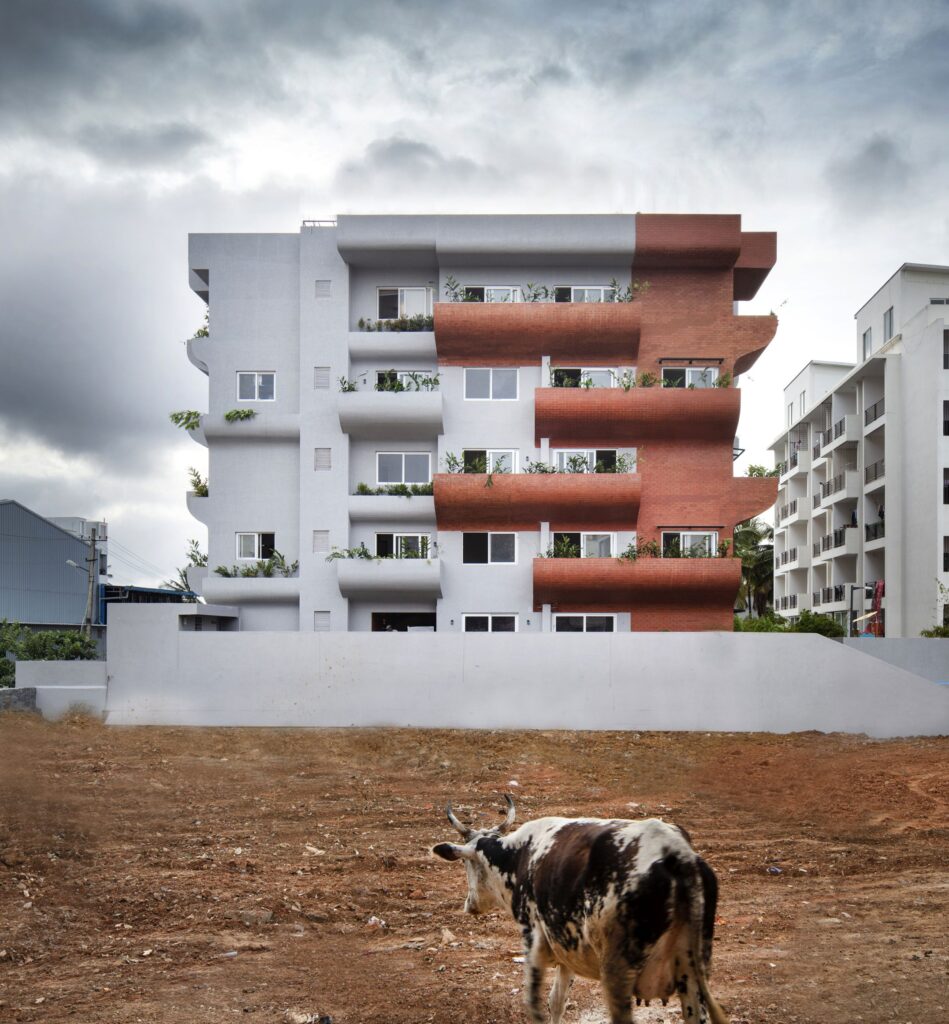
Axis Vanam, Bangalore designed by Purple Ink Studio.
Axis Vanam (Vanam meaning ‘Forest’ in Sanskrit) is a project that aims to be a green oasis within the chaos of its surroundings. The project was initiated with the idea of condensing the gap between the built and greens. With a little research of the neighbourhood, we identified the diminishing greens and dying lakes in the vicinity. Vanam is a reaction to this increasing breach in the urban fabric. It is designed as a stimulus to restore the balance in the built and green spaces blurring the boundaries between the two.
Located in the heart of one of the busiest neighbourhoods in Bangalore, Vanam is a mid-size housing project with 20 living units stacked across 5 levels. Every unit is outward-facing, with openings planned to integrate ample light and cross-ventilation. The central core is well lit with skylights and louvres at the terrace level, assisting in stack ventilation and making all the extents comfortable and less dependent on mechanical ventilation.
Each unit is compact and planned as a 2 Bedroom apartment with an additional flexible area, planned to be an extension to the deck. This space can be actively used by the residents for their various activities of the day. The structure also gives the flexibility to convert this area into a green pocket; hence no two units are alike. The multi-functional space changes in accordance with time and is adaptive to the lifestyle of the users.
The openings in the apartment are planned in the wind direction to induce ample natural ventilation. The balconies/decks are staggered to offer double-height volumes that are attached to either the Living or the Master Bedroom, also opening itself for taller trees in the balconies.
The balcony is re-defined as a “garden deck” to hold soil and paving, providing each home with its private garden at all levels. Moving away from the conventional box for the deck, the form of the balcony takes a cue from the soil repose angle and facilitates a sunk for soil filling. The fragmented, yet fluidic configuration of the balcony enhances the overall building geometry. The structure for the balcony is planned by adding deeper beams to undertake the soil load which in the course also opened the way for taller windows touching the beam bottom for the lower unit.
The formwork for the balconies was planned in a prototype of 4 feet width and 6 feet height. With several mock-ups done in GI to test the form, the final shuttering modules were done in MS. While the ideal methodology would have been to pre-cast the balconies, due to limited financial resources manual labour was involved and all the balconies were individually cast with the available number of modules and time frame. The planter boxes also followed the form and function of the balcony with integrated sunk to add more horizontal green spaces at each level.
The overall material palette interweaves with the greens from the balconies and planters. It is planned to highlight the double-height corner volumes and scale down the visual vocabulary. 12mm thick brick cladding along with exposed grey textures formed the prime façade materials. The alternate deck projections and materiality of the façade are also enhanced by the sun’s movement and the quality of light and shadow. The common areas are further held together by natural stone flooring and terracotta jalis for the skylight areas.
The planting pattern is tropical and native to the local region. Each balcony is provided with a tree engaging the users with their greens. The extended cantilevered spaces in the form of balconies and planter boxes give the user the opportunity to grow greens along the entire length. Expectantly, in the years to come, one would find more greens from the building than one would expect from an otherwise concrete surface.
The building is an attempt to function as an environmental filter by introducing “intermediate landscapes” that connect the residents with their green spaces.
Gallery
Drawing & Diagrams
Project Facts
Project Name: Axis Vanam
Location: Bengaluru
Gross Area: 20,000 sqft
Year of Completion: 2016
Architecture and Landscape: The Purple Ink Studio
Design Team: Akshay Heranjal, Nishita Bhatia, Aditi Pai, Jaikumar, Priyanka Bankapur, Sharanya, Amal.
Client: Axis Concept Construction
Photography Credits: Niveditaa Gupta
Structural Consultants: Naik Associates
MEP Consultants: Ceecon Engineers
























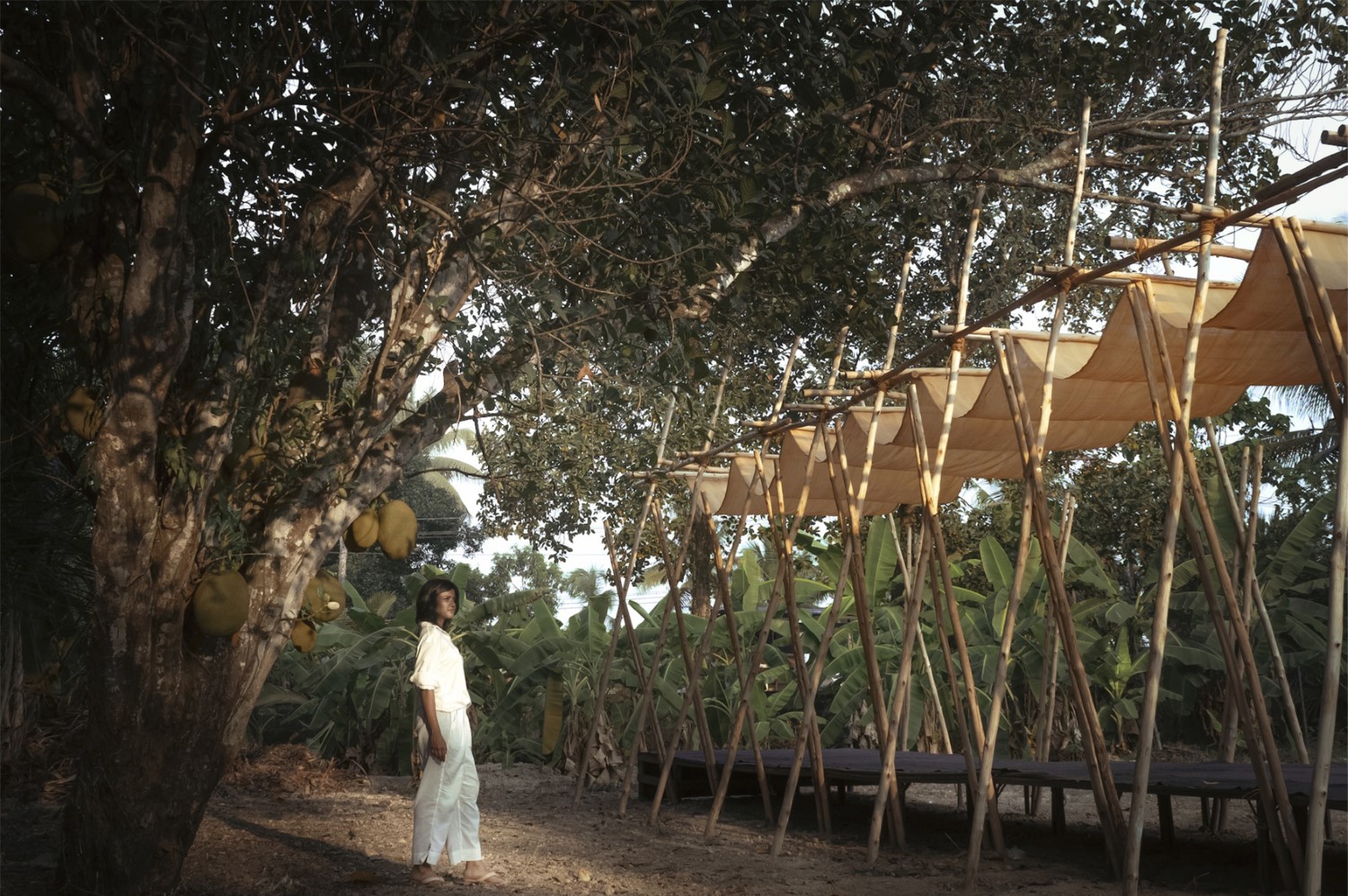
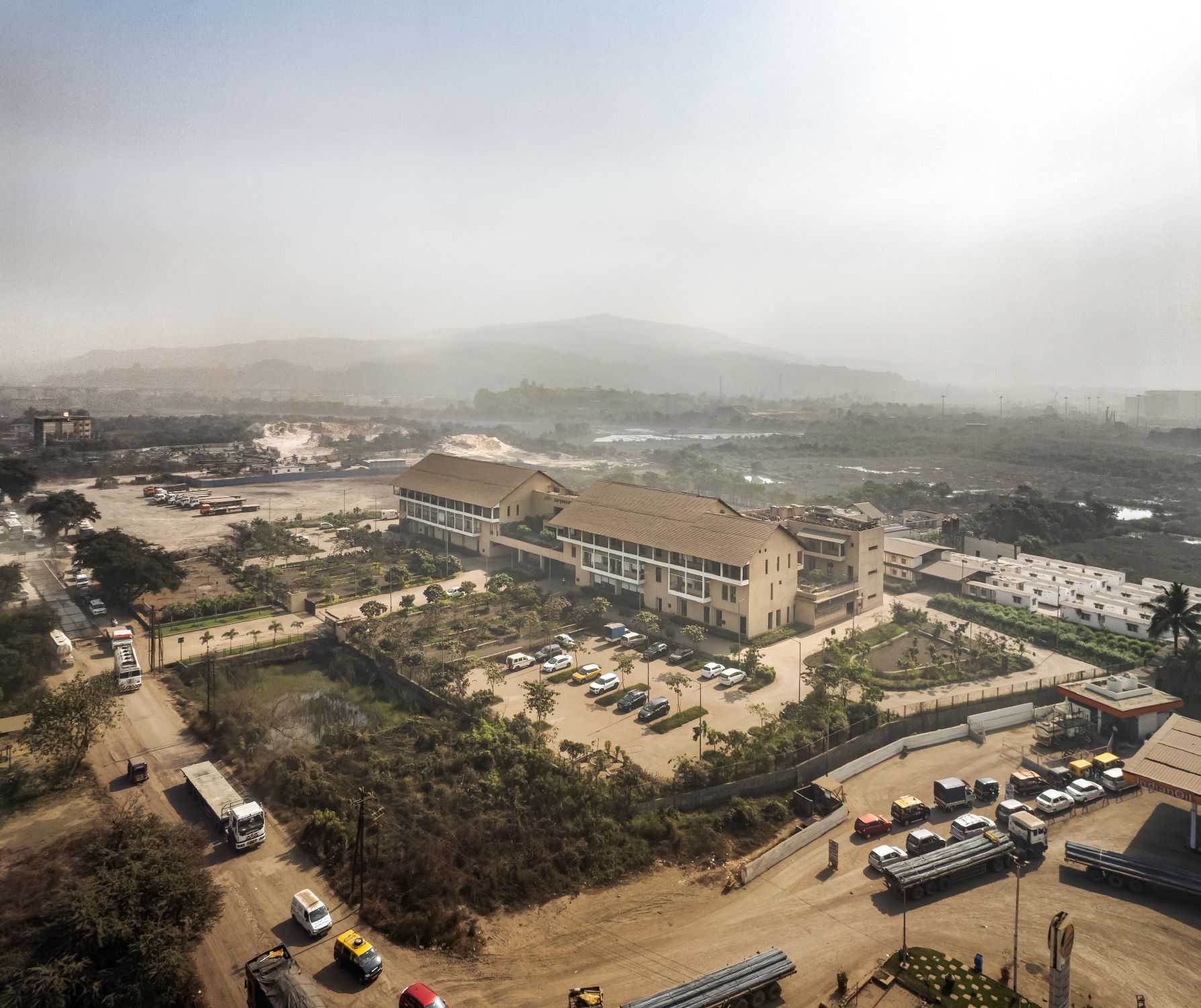
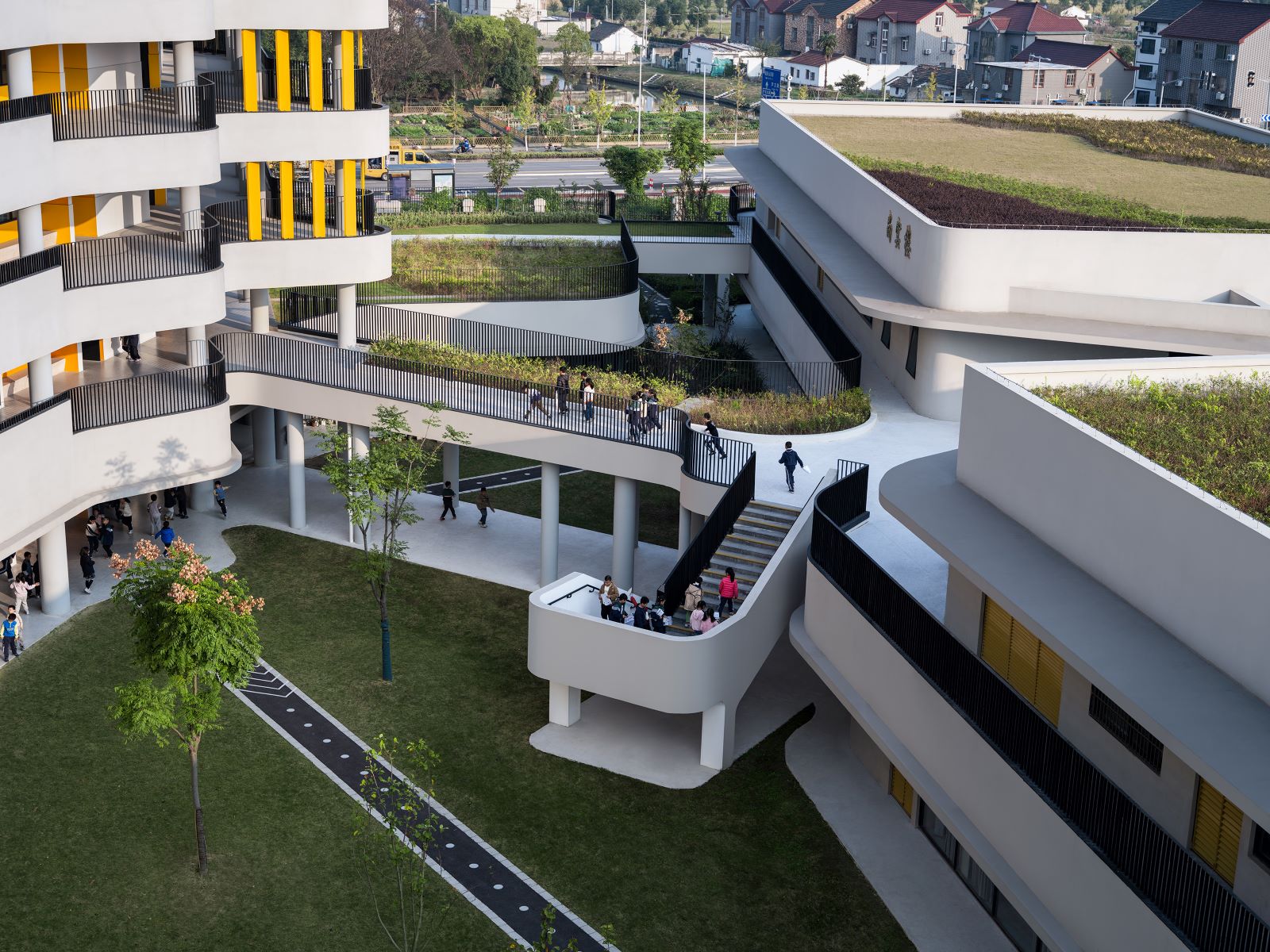
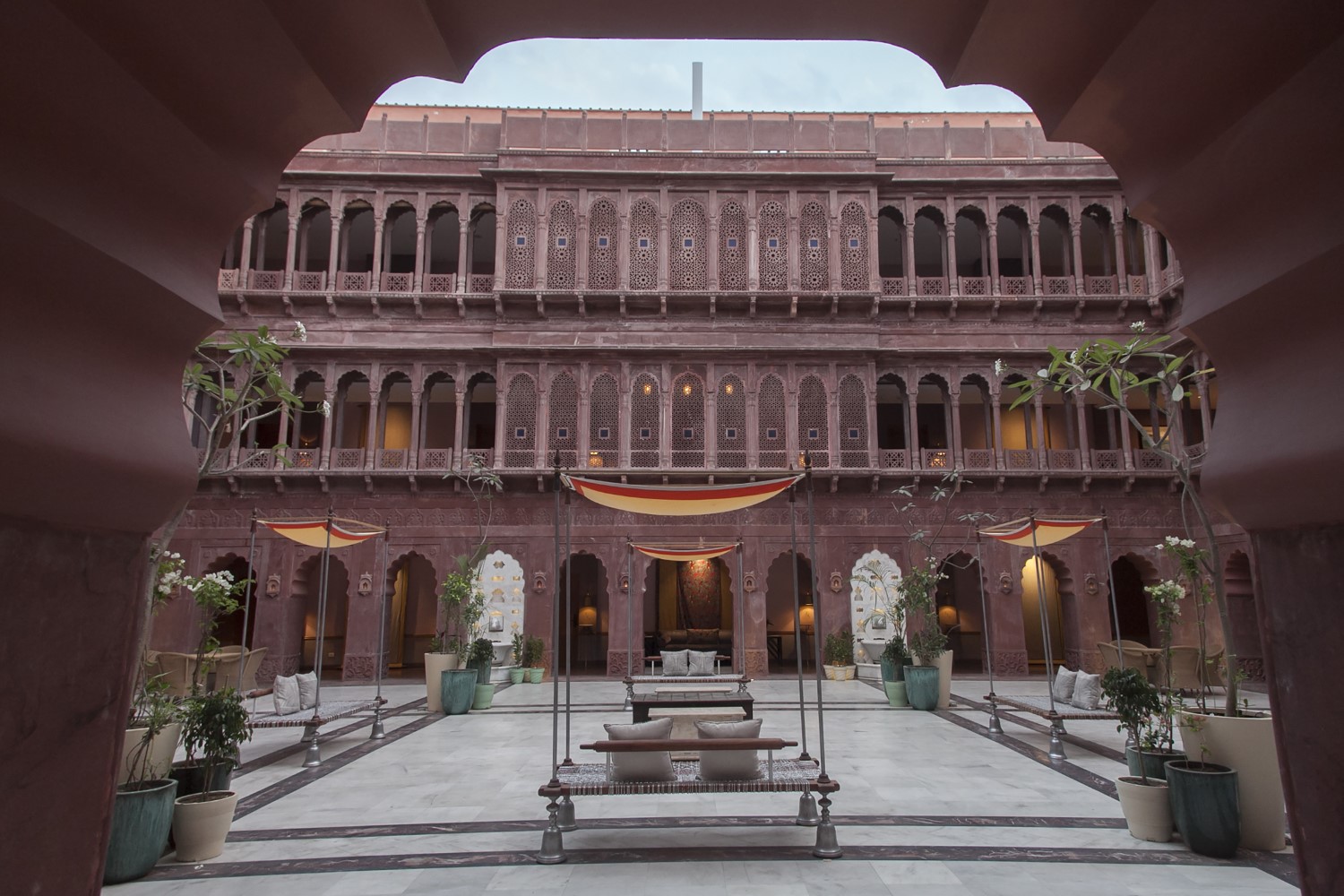
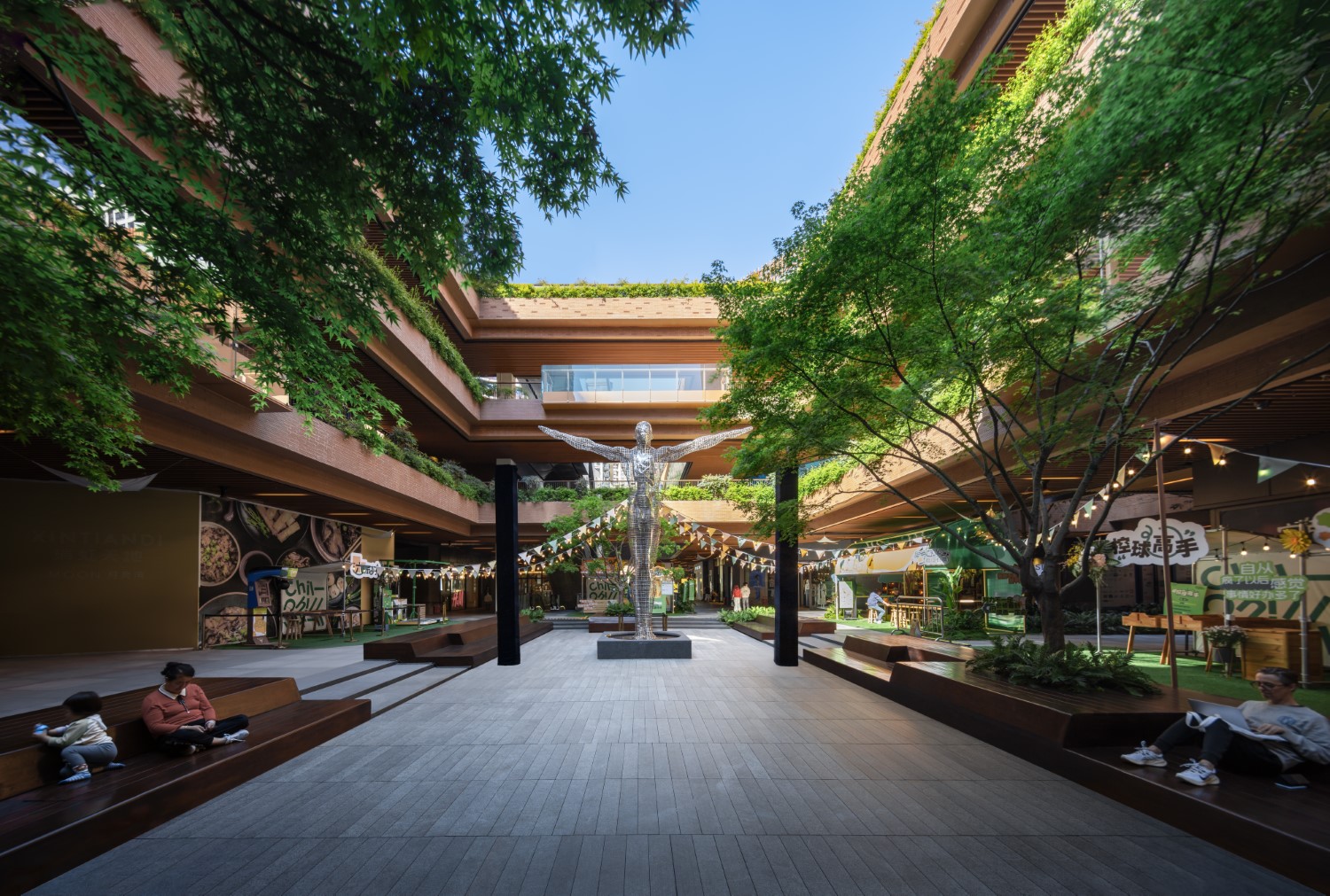
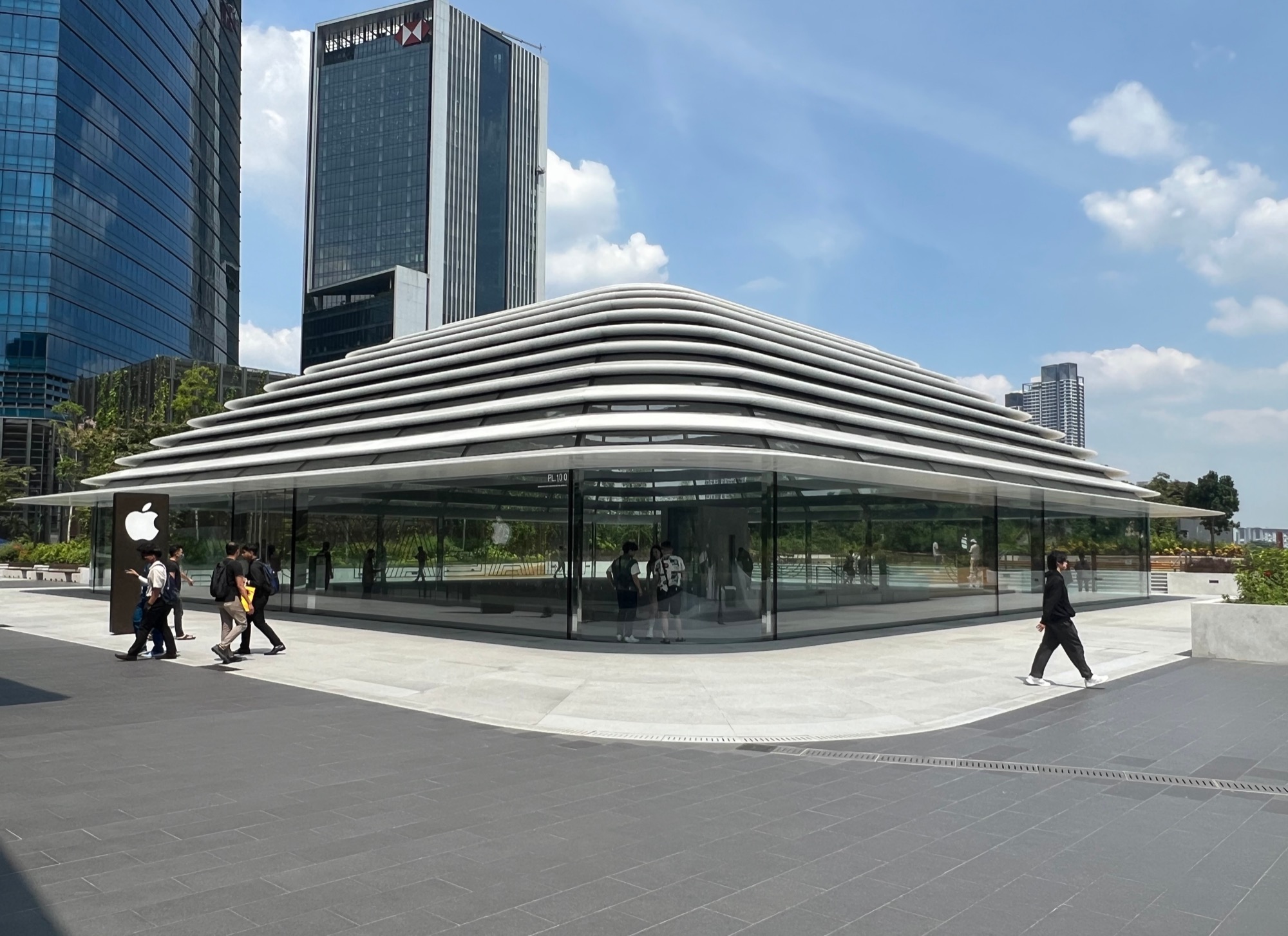
2 Responses